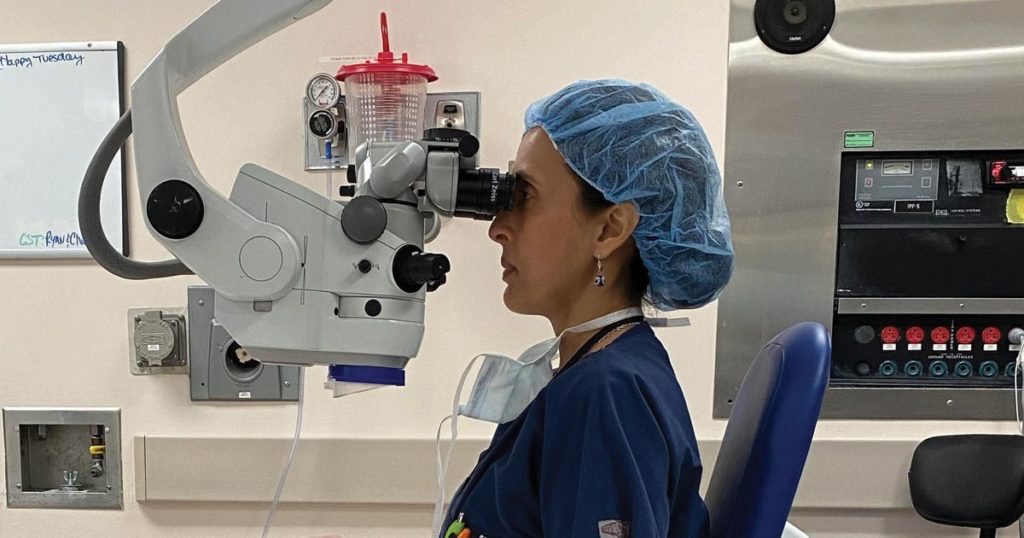Sight + Sound, Spring 2022
Deepinder Dhaliwal was lying flat on the table with acupuncture needles in her back when she had an epiphany.
“This is so very interesting,” thought the Professor of Ophthalmology at the University of Pittsburgh. “This is an ancient technique thousands of years old, and we’re still using it.”
Dhaliwal started researching acupuncture and its applications to the eyes. This led to her studying acupuncture in an intense year-long course through UCLA. She learned more intricate surface anatomy than she did in medical school and found it all fascinating. Now she is a licensed acupuncturist with a passion for integrative eye care.
In 2006, Dhaliwal founded the Center for Integrative Eye Care, the first of its kind in the nation. The mission was to help people not only with their eyes, but their bodies, minds, and spirits. Now Dhaliwal’s hope is to transition the Center into more of an integrated, cohesive concept in the entire Department.
“There’s a lot of power in blending East and West,” Dhaliwal said. “It’s not one or the other. When you combine the two, you get really amazing results.” This holistic view incorporates components like nutrition, mindfulness, and behavior modification.
The first randomized controlled trial done through the Center was on dry eye and acupuncture and opened Dhaliwal’s eyes to the power of acupuncture and integrative techniques to help patients heal. Continuing to carefully study integrative medicine techniques for vision care will improve evidence-based medicine and the result, which is to care for patients and improve their quality of life.
A second study is being prepared for publication on acupuncture and macular degeneration. Dhaliwal described the results of some patients being treated under this protocol as amazing. “It’s powerful,” she added, “but we need to understand more and tweak the protocol. Not all patients had the same results.”
Efforts to study and provide integrative eye care treatments slowed down a bit but will be gearing back up, especially with the Vision Institute opening soon. Integrating all the different disciplines is crucial. Dhaliwal would like to see a nutritionist on staff in the Department of Ophthalmology to provide nutritional guidance, which is elemental in the whole process.
“We would be so much better as a health system if we kept people well and prevented dis-ease,” Dhaliwal said.
This means also adding mental health counselors to the staff. Patients can be depressed when given a diagnosis of a condition that results in permanent vision loss. “Patients need help and because we have a crisis right now in mental health, it’s difficult to find help,” Dhaliwal said.
And there is not much of a downside to integrative medicine. There are very few side effects from acupuncture, for example (which does not mean inserting needles in the eyes, by the way).
Dhaliwal strongly believes that integrative ophthalmology is the future. After some strategizing on how to best implement it in the Department, she will continue to pursue this cause that is near and dear to her heart.
“We’re helping the entire patient, not just their eyes,” Dhaliwal sums up.
